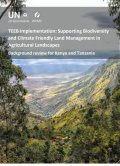
The aim of this report,TEEB Implementation: Supporting Biodiversity and Climate Friendly Land Management in Agricultural Landscapes - Background review for Kenya and Tanzania, is to assess the current knowledge on the values of biodiversity and ecosystem services in Tanzania and Kenya, to understand what can currently be readily assessed with respect to the interactions between climate change, biodiversity and agricultural development to look at major policy initiatives already in place in the environment and development space, and map key stakeholders.
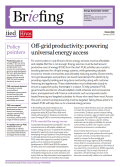
This policy brief, Off-grid productivity: powering universal energy access, outlines how mainstreaming productive uses of energy (PUE) can drive economic development, boost demand for energy, and support governments' sustainable development plans based upon evidence and experiences from the Energy Change Lab, a programme led by IIED and Hivos that works closely with partners in Tanzania on productive uses of energy (PUE) for community entrepreneurs.
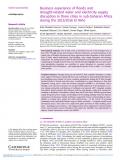
The El Niño event in 2015/2016 was one of the strongest since at least 1950. Drought during the event amplified disruption to public water supply in Botswana’s capital and contributed to unprecedented hydroelectric load shedding across Zambia. In Kenya, moderate precipitation during the El Niño brought localized floods to Nairobi and other areas. Yet, during the 2015/2016 El Niño, fluctuations in precipitation were not extreme considering the strength of the El Niño event. Results, therefore, highlight that even fairly moderate precipitation anomalies can contribute to major disruption to economic activity.
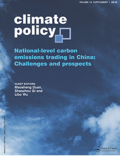
It is becoming increasingly clear that fossil fuels impose a high price on society through local environmental pollution and Africa’s particular vulnerability to climate change. By comparing results from state-of-the-art Integrated Assessment Models, this report find different options for achieving a sustainable energy supply in Africa.
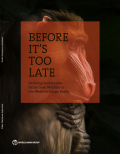
Before It’s Too Late: Deriving sustainable value from wildlife in the western Congo Basin presents lessons from international experience for creating economic value from wildlife to help address the rapid decline of wildlife resources in the the Western Congo Basin while contributing to both poverty alleviation and conservation.
